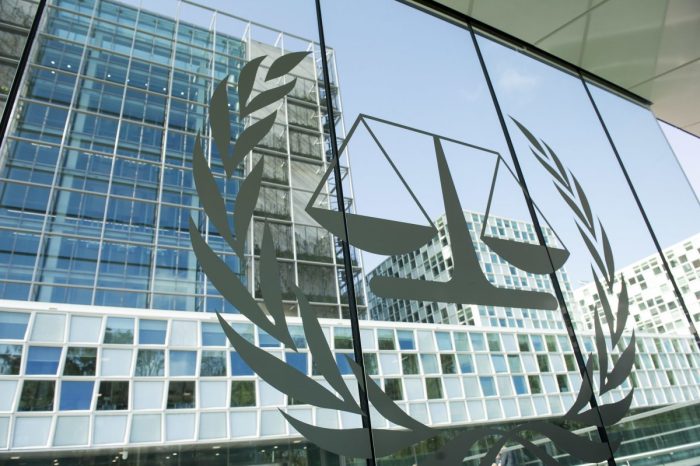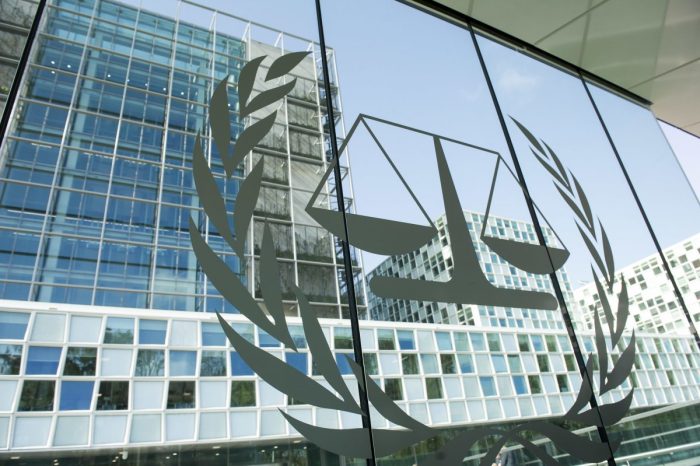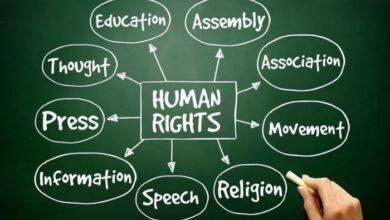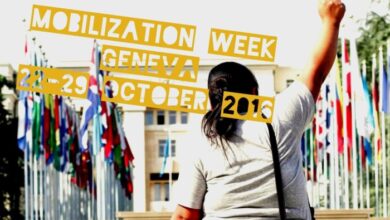
International Criminal Court Introduction: A Guide to Global Justice
International Criminal Court Introduction: A Guide to Global Justice – The International Criminal Court (ICC) stands as a beacon of hope in the fight against impunity for the world’s most heinous crimes. Established in 2002, the ICC represents a monumental shift in the pursuit of justice, offering a platform for holding individuals accountable for atrocities like genocide, crimes against humanity, and war crimes.
The ICC’s mission is to ensure that perpetrators of these crimes face justice, regardless of their position or power.
The ICC’s reach extends across borders, investigating and prosecuting individuals accused of the most serious crimes of concern to the international community. It operates independently from national courts, stepping in when national jurisdictions are unable or unwilling to prosecute such crimes.
This unique role underscores the ICC’s significance as a last resort for victims seeking justice and a deterrent against future atrocities.
Structure and Functioning of the ICC
The International Criminal Court (ICC) is a permanent court established to investigate and prosecute individuals accused of the most serious crimes of concern to the international community, namely genocide, crimes against humanity, war crimes, and the crime of aggression. Its structure and functioning are designed to ensure a fair and impartial judicial process while adhering to the principles of international law.
Composition of the ICC’s Key Organs
The ICC’s structure is comprised of several key organs, each with distinct roles and responsibilities. These organs work together to ensure the effective operation of the Court.
The International Criminal Court (ICC) was established to hold individuals accountable for the most serious crimes of concern to the international community, including genocide, crimes against humanity, and war crimes. While the ICC’s focus is primarily on individual perpetrators, the actions of powerful entities like pharmaceutical corporations can also contribute to these crimes.
A prime example is the ongoing struggle against AIDS, where the pharmaceutical corporations and aids debate has highlighted the complex interplay between corporate greed, public health, and international justice. The ICC’s mandate may not directly address this issue, but it underscores the need for accountability at all levels, from individuals to corporations, to prevent and punish crimes that threaten global peace and security.
- Presidency:The Presidency of the ICC is responsible for the overall administration of the Court. It comprises three judges elected by the Assembly of States Parties for a three-year term. The President chairs the Judicial Divisions and ensures the smooth functioning of the Court’s judicial proceedings.
- Judicial Divisions:The ICC’s judicial functions are carried out by three Judicial Divisions: the Pre-Trial Division, the Trial Division, and the Appeals Division. Each division is composed of judges elected by the Assembly of States Parties for a nine-year term.
- Pre-Trial Division:This division is responsible for examining the admissibility of cases and issuing arrest warrants for individuals suspected of committing crimes within the ICC’s jurisdiction.
- Trial Division:The Trial Division conducts trials for individuals accused of crimes within the ICC’s jurisdiction. It is responsible for determining guilt or innocence and imposing sentences if necessary.
- Appeals Division:This division reviews decisions of the Pre-Trial and Trial Divisions. It can confirm, amend, or reverse decisions made by the lower divisions.
- Office of the Prosecutor:The Office of the Prosecutor is responsible for investigating alleged crimes within the ICC’s jurisdiction and initiating prosecutions. The Prosecutor is elected by the Assembly of States Parties for a nine-year term. The Office of the Prosecutor is independent of the other organs of the Court and works to ensure that investigations and prosecutions are conducted fairly and impartially.
Procedures Involved in Initiating an Investigation and Conducting a Trial
The ICC’s procedures for initiating an investigation and conducting a trial are designed to ensure fairness and due process.
- Referral:An investigation can be initiated by the Prosecutor acting on his or her own motion or by a referral from a State Party, the United Nations Security Council, or the Assembly of States Parties.
- Preliminary Examination:Once a case is referred to the ICC, the Prosecutor conducts a preliminary examination to determine whether there is a reasonable basis to believe that crimes within the ICC’s jurisdiction have been committed.
- Authorization of an Investigation:If the Prosecutor determines that there is a reasonable basis to believe that crimes within the ICC’s jurisdiction have been committed, they must seek authorization from the Pre-Trial Chamber to open a formal investigation.
- Investigation:During an investigation, the Prosecutor gathers evidence and interviews witnesses.
- Issuance of an Arrest Warrant:If the Prosecutor believes that there is sufficient evidence to warrant the arrest of a suspect, they can request the Pre-Trial Chamber to issue an arrest warrant.
- Trial:If an arrest warrant is issued and the suspect is apprehended, they will be brought before the Trial Division for trial.
- Judgment and Sentencing:After the trial, the Trial Division will issue a judgment determining the guilt or innocence of the accused. If found guilty, the accused may be sentenced to imprisonment or other penalties.
Roles and Responsibilities of Different Actors in the ICC
The ICC’s judicial process involves the participation of various actors, each with distinct roles and responsibilities.
- Judges:Judges are responsible for presiding over hearings and trials, issuing decisions, and ensuring that the judicial process is conducted fairly and impartially.
- Prosecutors:Prosecutors are responsible for investigating alleged crimes, gathering evidence, and presenting cases before the Court.
- Defense Lawyers:Defense lawyers are responsible for representing the interests of the accused and ensuring that their rights are protected throughout the judicial process.
- Victims:Victims of crimes within the ICC’s jurisdiction have the right to participate in the judicial process. They can provide statements, seek reparations, and receive support from the Court.
Principles of International Criminal Law

The International Criminal Court (ICC) is a court of last resort, meaning it only steps in when national courts are unwilling or unable to prosecute the most serious crimes of concern to the international community. The ICC’s work is guided by a set of fundamental principles of international criminal law, ensuring fairness and justice in its proceedings.
The International Criminal Court (ICC) is a crucial institution for holding individuals accountable for the most serious crimes of concern to the international community. While the ICC focuses on justice, it’s important to remember that development issues are interconnected with peace and security.
Organizations like those featured on non governmental organizations on development issues work tirelessly to address the root causes of conflict, such as poverty and inequality, which can contribute to the crimes the ICC investigates.
These principles are essential for the court’s legitimacy and its ability to hold individuals accountable for the most serious crimes.
The International Criminal Court (ICC) is a groundbreaking institution, aiming to hold individuals accountable for the most serious crimes of concern to the international community. It’s fascinating to consider how global events, like the debt and the global economic crisis of 1997-98-99 , can influence the ICC’s work, as economic instability can contribute to conflict and human rights violations, which fall under the court’s jurisdiction.
Understanding the ICC’s role in a complex world requires considering such interconnected issues.
Nullum Crimen Sine Lege
This principle, also known as the principle of legality, is a cornerstone of international criminal law. It means that no one can be held criminally responsible for an act that was not a crime at the time it was committed.
This principle is enshrined in Article 25 of the Rome Statute, the ICC’s founding treaty. It ensures that individuals are not punished retroactively for acts that were not considered criminal at the time they were committed.
“No one shall be held criminally responsible for an act or omission which did not constitute a criminal offence under national or international law at the time when it was committed.”
Article 25, Rome Statute of the ICC
Nulla Poena Sine Lege
This principle, meaning “no punishment without law,” is closely related to the principle of nullum crimen sine lege. It ensures that no one can be punished for an act unless it was specifically defined as a crime in law at the time it was committed.
This principle prevents arbitrary punishments and ensures that individuals are aware of the legal consequences of their actions.
“No one shall be punished for an act or omission which did not constitute a criminal offence under national or international law at the time when it was committed.”
Article 25, Rome Statute of the ICC
Complementarity
The principle of complementarity is a key feature of the ICC’s jurisdiction. It means that the ICC will only intervene when national courts are unable or unwilling to prosecute serious crimes. This principle ensures that the ICC does not usurp the role of national courts, but rather complements their efforts in holding perpetrators accountable.
- The ICC will only investigate and prosecute crimes if national courts are unable or unwilling to do so themselves. This principle is enshrined in Article 17 of the Rome Statute.
- The ICC’s role is to complement, not replace, national justice systems.
- The principle of complementarity ensures that the ICC only steps in when necessary, respecting the sovereignty of states.
Challenges and Criticisms of the ICC
The International Criminal Court (ICC), despite its noble objectives, faces a range of challenges and criticisms that impact its effectiveness and legitimacy. These concerns stem from various aspects, including its operational mechanisms, political considerations, and its relationship with national jurisdictions.
Selectivity and Bias, International criminal court introduction
The ICC’s focus on specific geographical regions and conflicts has raised concerns about selectivity and bias. Critics argue that the court disproportionately targets African nations, neglecting atrocities in other parts of the world. For instance, the ICC has investigated and prosecuted cases primarily in African countries, leading to accusations of a “double standard” and a lack of impartiality.
- Lack of investigations in powerful nations:The ICC has not pursued investigations in countries like the United States, Israel, or Russia, despite allegations of war crimes and crimes against humanity. This lack of action reinforces the perception that the court is biased towards weaker nations.
- Political influence:Some argue that the ICC’s decisions are influenced by political pressure from powerful states, leading to selective prosecution and a lack of accountability for powerful individuals. This perception undermines the court’s credibility and its ability to act independently.
Political Interference and National Sovereignty
The ICC’s relationship with national governments is complex and often fraught with tension. Some nations have accused the court of infringing on their sovereignty by interfering in their internal affairs. The ICC’s mandate to prosecute individuals for the most serious crimes raises concerns about the potential for political interference and the undermining of national legal systems.
- Withdrawal of states:Several countries, including South Africa, Burundi, and the Philippines, have withdrawn from the Rome Statute, citing concerns about the ICC’s jurisdiction and perceived interference in their domestic affairs. This highlights the ongoing tension between international justice and national sovereignty.
- Non-cooperation by states:Some states have resisted cooperation with the ICC, refusing to surrender suspects or provide evidence, which hinders the court’s investigations and prosecutions. This lack of cooperation can be attributed to political considerations, national interests, or a perceived threat to national sovereignty.
Limited Enforcement Mechanisms
The ICC faces significant limitations in enforcing its decisions and judgments. The court relies on states to arrest and surrender suspects, and to execute its sentences. However, the lack of a standing army or independent enforcement mechanisms makes it difficult to enforce its decisions in the face of resistance from states.
- Dependence on state cooperation:The ICC’s effectiveness hinges on the cooperation of states, which can be unreliable and subject to political considerations. This dependence on states limits the court’s ability to act decisively and effectively.
- Lack of enforcement power:The ICC lacks its own enforcement mechanisms, relying on states to arrest and surrender suspects. This dependence on state cooperation can be problematic, as states may be unwilling or unable to cooperate with the court.
Lack of Accountability and Transparency
The ICC has also faced criticism for its lack of accountability and transparency. Some argue that the court’s decision-making processes are opaque, and that there is insufficient scrutiny of its actions and decisions.
- Limited public access:The ICC’s proceedings are often closed to the public, which limits transparency and public scrutiny of its operations. This lack of transparency can contribute to public skepticism and distrust of the court.
- Limited oversight:The ICC’s internal oversight mechanisms are seen as inadequate, leading to concerns about accountability and the potential for abuse of power. This lack of oversight can erode public confidence in the court’s integrity.
Impact and Significance of the ICC: International Criminal Court Introduction
The International Criminal Court (ICC) has had a profound impact on international justice and the fight against impunity for serious crimes. Since its inception, the ICC has investigated and prosecuted individuals accused of genocide, crimes against humanity, war crimes, and the crime of aggression.
The court’s work has helped to hold perpetrators accountable for their actions, deter future atrocities, and promote the rule of law on a global scale.The ICC’s impact can be seen in various ways.
Holding Perpetrators Accountable
The ICC has played a crucial role in holding perpetrators of mass crimes accountable for their actions. By bringing cases against individuals accused of serious crimes, the court has helped to ensure that those who commit such atrocities do not go unpunished.
For example, the ICC’s prosecution of Thomas Lubanga Dyilo, a Congolese warlord, for the recruitment and use of child soldiers in the Ituri conflict in the Democratic Republic of Congo (DRC) was a landmark case. The conviction of Lubanga sent a clear message that the international community would not tolerate the use of child soldiers in armed conflict.The ICC’s work has also contributed to the development of international criminal law.
The court’s jurisprudence has helped to clarify the meaning and scope of international crimes, and its decisions have provided guidance for national courts and other international tribunals.






